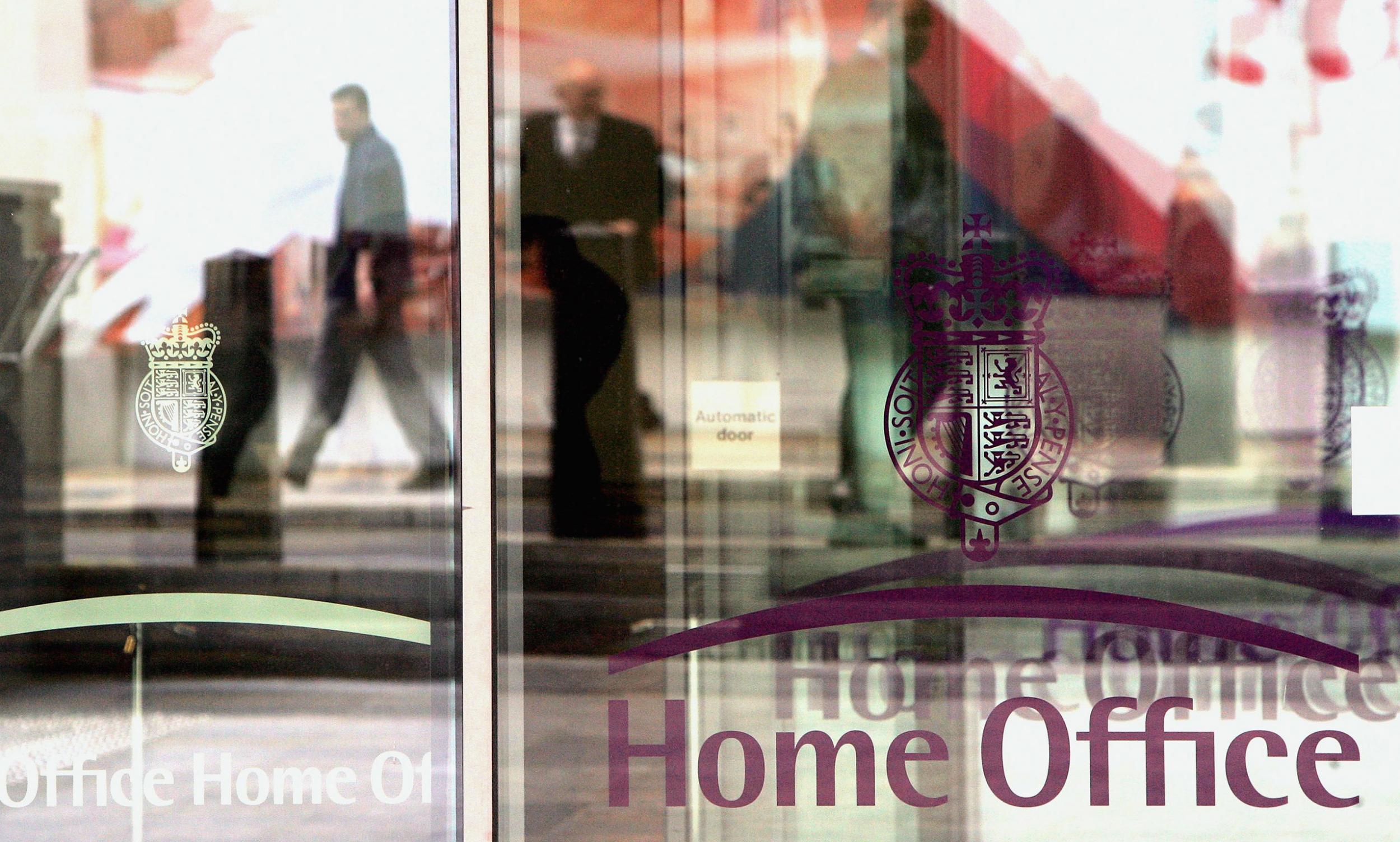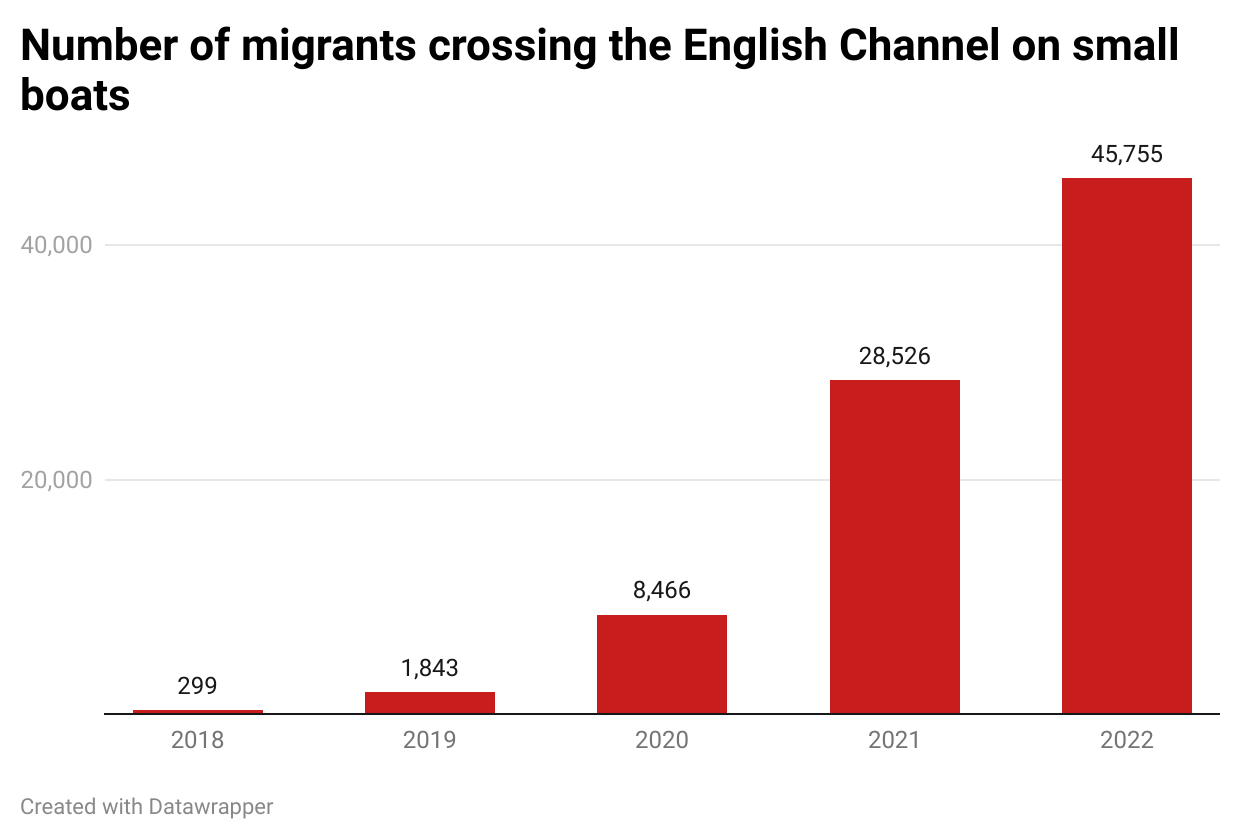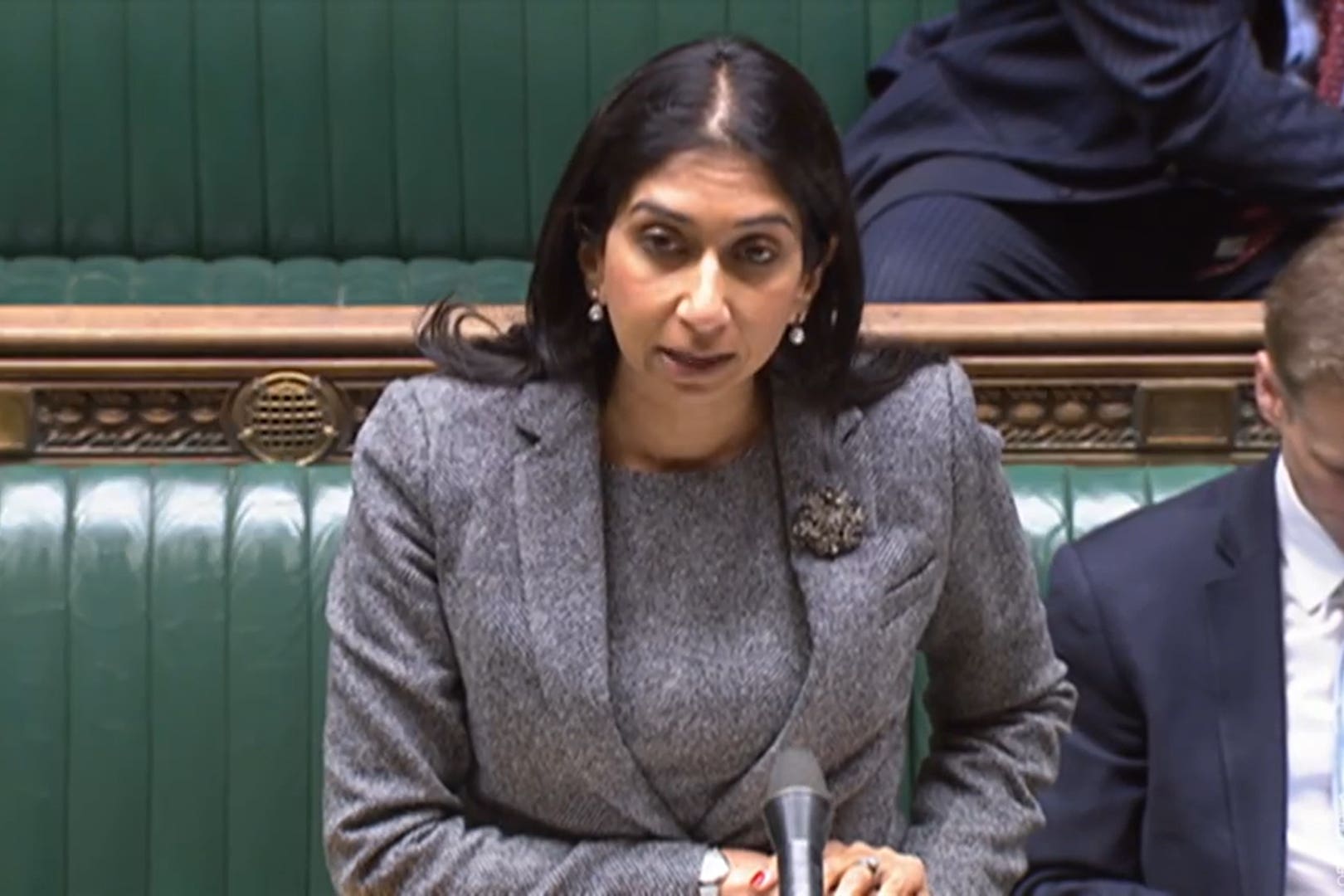
The Home Office is facing an “exodus” of asylum caseworkers who fear being forced to act illegally under the Illegal Migration Bill, it has been claimed.
An official who decides claims told The Independent staff were already angry at the home secretary for accusing them of working too slowly when they are hampered by lost documents, rapidly changing policies and “inefficient” processes.
The annual attrition rate for asylum decision-makers hit 46 per cent last year, forcing the government to introduce a “recruitment and retention allowance” to maintain staff while scrambling to recruit more.
Speaking to The Independent, the caseworker accused the Home Office of:
- Setting ‘impossible’ targets for decision-making
- Pushing caseworkers to refuse as many applications as possible
- Worsening backlog with ‘ludicrous’ attempts to bar asylum seekers who passed through France
- Throwing staff into traumatic interviews with rape and torture victims with inadequate training
David*, who spoke on condition of anonymity, said colleagues had raised concerns in meetings and on government message boards that plans to detain and deport asylum seekers without considering their claims would break international law.
“There’s going to be a big exodus if this bill gets passed,” he warned. “You cannot enforce a law if you're not willing to play by the law.
“You cannot strip human rights from people in a country in which we have the Human Rights Act and have signed the Refugee Convention. You can’t do this kind of **** and still pretend that you are legal.
“Being elected doesn’t give you the right to break the law.”

Another official with knowledge of the current situation said that asylum decision-makers were leaving because of a “priority overload and the introduction of policies that can’t be done”.
“The attrition rate is pretty scary,” he added. “Most civil servants accept the fact the work may be unpalatable but they’ll do it as long as it’s lawful.
“If that changes there are large numbers saying they don’t want to do it.”
The official said concerns were also mounting inside the Home Office that recruitment efforts for asylum caseworkers and staff from ethnic minorities are being hampered by “reputational damage from the Rwanda deal and wider asylum narrative”.
Conservatives have previously blamed an “activist blob of left-wing civil servants” for frustrating its asylum policies, but David said his opinions were not politically driven, and that he was “pretty right-leaning” himself.

The Independent has seen internal communications from Home Office leaders telling civil servants they should work to make the Illegal Migration Bill “a success”, warning: “Any new policy is only ever as good as its implementation.”
The government has also been pushing decision-makers to work faster after Rishi Sunak pledged to clear the pre-June 2022 backlog of cases by the end of this year.
“They are not trying to solve the backlog, they’re trying to refuse as many people as possible,” David said.
He condemned the “ludicrous” policy of attempting to declare asylum claims inadmissible if people passed through safe countries on their journey to the UK.
“Britain is an island, you have to pass through a different country,” he added. “If you want to claim asylum, you have to be here.”
Official figures show that only a handful of thousands of small boat migrants considered for inadmissibility declarations have been deported, and David said the policy was “pointless” with the Rwanda scheme stalled and no returns agreements with other countries.
“They take months to decide, but there’s nowhere to send them,” David said, saying that he deals with cases delayed by inadmissibility attempts “all the time”.
In December, Suella Braverman accused asylum caseworkers of making decisions too slowly, telling a parliamentary committee: “Frankly their productivity is too low, the average decision-making rate of a decision-maker per week is one. We need to increase that considerably.”

David said it was “impossible” for more than two decisions to be made a week because of the exhaustive process required.
He said that when caseworkers receive a claim they must review and read all associated documents, but that material is regularly missing and hard to find because of backlogs meaning he is frequently considering applications made in 2019.
“You have to contact the person that wrote that note by the phone, email, whatever.” David added. “You hope that they are online and they're not on annual leave and whatnot ask: What about this document? Where is this? Where is this thing?”
Following that stage, a series of security and immigration checks are made and substantive interviews must be arranged, which can take up to eight hours each and involve translators.
David accuses the Home Office of “inadequate” training to deal with traumatised people giving accounts of “rape, torture, imprisonment, beatings” on a regular basis.
He said that after conducting his first interview with a female asylum seeker who had been sobbing while giving a graphic account of abuse, managers “laughed” and told him to “get used to it”.
After interviews, caseworkers must make decisions after balancing the person’s account against complex Home Office guidance on safety and human rights issues in the countries they fled.
The Independent understands that asylum decision-makers are paid between £25,000 and £27,000 a year, and former Home Office permanent secretary Sir Philip Rutnam has questioned why the role is at a low civil service grade.
Speaking at an event in October, he pointed to countries like Switzerland that position the role as much more senior and adjust pay, training and working conditions accordingly.
“In the UK we use executive officers [second-lowest civil service grade] as asylum decision-makers,” he said. “It’s a relatively junior position to be making life-changing decisions.”
The Home Office said it was developing comprehensive plans to tackle the asylum backlog and increase caseworkers’ productivity by streamlining processes and recruiting more staff.
It said decision-makers were provided with appropriate training on how to respond to and consider any underlying factors, such as trauma, and that training addressed their personal wellbeing.
A spokesperson added: “The government is taking immediate action to clear the asylum backlog by doubling the number of asylum caseworkers to 2,500 and streamlining interviews and paperwork.
“Our processes are underpinned by a robust framework of safeguards and quality checks, ensuring that claims are properly considered, decisions are sound, and that protection is granted to those who genuinely need it.”
*name has been changed to protect anonymity







